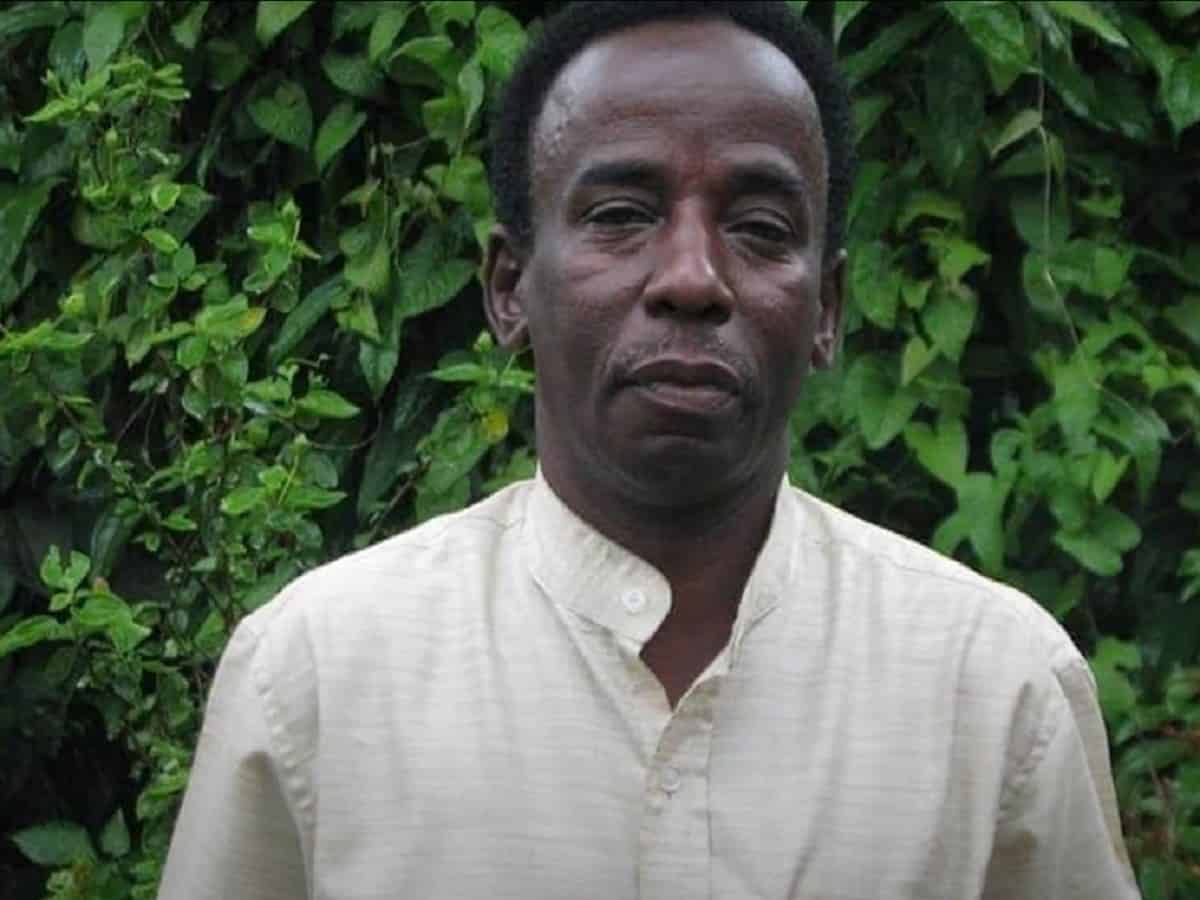Bengaluru: For the Siddi community in Karnataka, which traces its roots to Africa, Wednesday was a day to rejoice when for the first time, someone among them made it to the Karnataka legislature.
Courtesy the Bharatiya Janata Party, Shantharam Budna Siddi along with four others was nominated to the Karnataka Legislative Council by Governor Vajubhai Vala.
Siddi is the state secretary of the Vanavasi Kalyan Ashram, a tribal welfare initiative of the RSS.
Living in a modest house in Hitlahalli between Sirsi and Yellapur in North Kannada district, Shantharam Siddi is the first graduate from the community.
According to him,the Siddi community traces its roots to Africa, somewhere in Mozambique and Kenya whom the Portuguese had trafficked as slaves to India along the coasts of the Western Ghats.
The Portuguese left after India got independence and the Siddi community started dwelling in the deep forests of Western Ghats.
To a question, he said he has no information about the roots or the village his ancestors belonged to but somehow the community managed to save their language.
The language, according to Siddi, is a mixture of Konkani-Marathi, which also has some words, which is neither Konkani, Marathi or even Sanskrit.
“It’s unique,” he added.
More than happiness, the position of a lawmaker bestowed on him worries him as it comes with loads of responsibility.
“I am not thinking of the Siddi community alone, I am equally concerned about the entire tribal community of the state,” Siddi said.
There are 54 tribal communities and all of them confront different challenges, said Siddi, adding that there was a need to address it collectively at the different levels of administration.
Siddi is equally concerned about many other communities who are living in subhuman conditions but have not been categorised as tribals.
Incorporating them all in the list of tribals to avail them government benefits is also his goal.
“There are many communities like Dhangar Gawli, Kunbi, Halakki Vokkaliga…all live like tribes but are not scheduled as tribes.
Our demand to the Centre through the state will be that they should also be categorised as tribals,” Siddi added.
When asked about formal education, Siddi said along with formal education, there was a need to give moral education too.
“What is the use of a person who grows big and acquires even a PhD without having concern for the nation or community and limits himself to the family and children alone?” Siddi argued.
“Siddi community members have become Gram Panchayat secretaries and even Taluk Panchayat secretaries but there were no other political representatives in our community,” Shantaram says.
Siddi Community
The Siddi community is recognised as a Scheduled Tribe in Karnataka. There are around 40,000 community members living in the forested areas of Yellapur and Haliyal in Uttara Kannada district while around 10,000 others live in neighboring areas including in Dharwad and Belagavi.
The community has lived in relative seclusion in India for over five centuries and historians say that the Siddis docked in India in the 16th century as domestic slaves of Portuguese traders from Mozambique, which was also a Portuguese colony at the time.
When slavery was outlawed in Portuguese colonies in 1869, the Siddis migrated from Goa to forest areas in Karnataka, Gujarat and Maharashtra, where they are found today. Members of the community live in poverty, mostly doing coolie work for plantation owners. They also face racial discrimination on a day-to-day basis, something Shantaram says he is familiar with.
“Siddis are made fun of especially in coastal areas like Karwar and Ankola in Uttara Kannada. People refer to us as Africans and they assume we are all Christians. But that is not the case. We speak fluent Kannada and sometimes even Kundapur Kannada,” says Shantaram.
Shantaram was one of the first graduates from his community to pass out of Karnataka University in 1988. “Ever since then, I have been involved in social service. I have toured the state and represented my community proudly. But today, I also want to say that I will stand for other communities in Uttara Kannada like the Gawlis and Halakki Vokkaligas and not just for the Siddi community,” Shantaram says. Shantaram also worked as state secretary of the Vanavasi Kalyan Prakalpa, a tribal welfare initiative of the Rashtriya Swayamsevak Sangh (RSS).
Shantaram hopes to initiate changes that would help forest dwellers from existing government schemes under the Forest Rights Act (FRA). Forest dwellers are asked to produce documents dating back 75 years to qualify as an Other Traditional Forest Dweller (OTFD) and claim rightsunder FRA. “They have to prove that they primarily lived in forests for three generations and this also involves getting an old member of the community to say this person’s ancestor was living in the forest 75 years ago. On top of that, they have to produce a certificate ascertaining the mental health of the 80 year old is stable,” explains Shantaram.
He says this process is often laborious and requires forest dwellers to search for documents dating back to India’s independence. “I want to change this laborious process and I will be doing this starting with the Vidhana Parishad,” he says.
Speaking about the controversial Hubbballi-Ankola railway line, Shantaram says that the state government should adopt sustainable development models. “We need railway lines and there are not many forest areas from Hubballi to Yellapur but from Yellapur to Ankola, there are green forests which should not be disrupted. TV Ramachandra from (Indian Institute of Science) has published a report and the state government should heed his advice since he is a sound scientific voice,” Shantaram says.
“The Sharavathi valley has evergreen forest areas that protect biodiversity and medicinal plants and they should be preserved. The project needs to be reconsidered if it displaces forest dwellers in the region,” says Shantaram.

